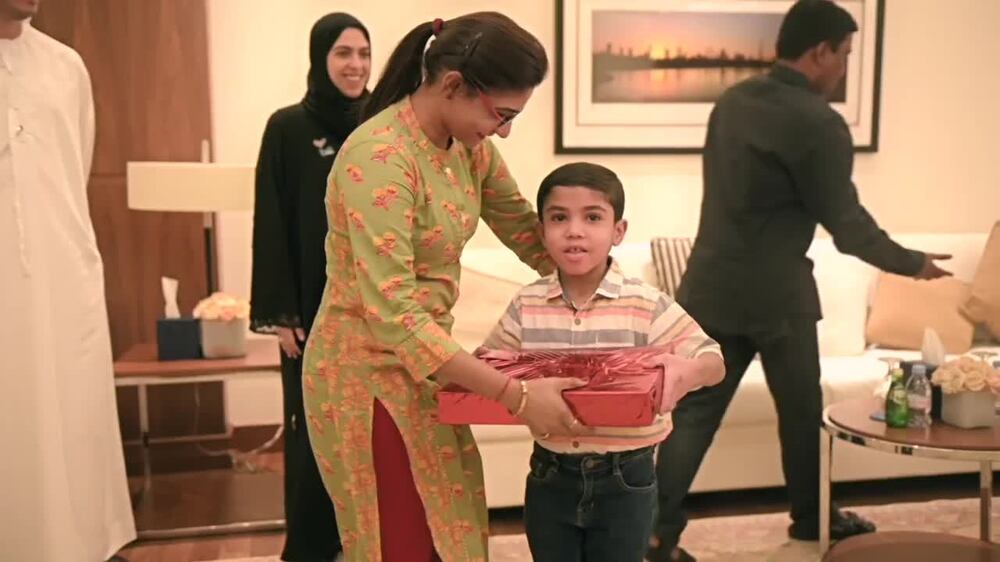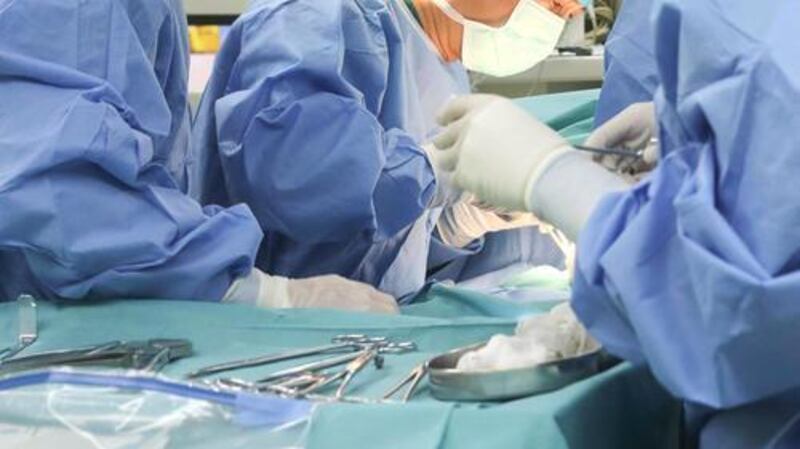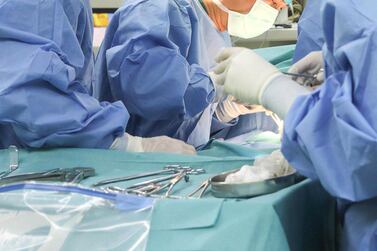Two parents who donated their young daughter's organs following her tragic death have met with a child whose life was saved by their 'selfless' act.
Arun Kumar Tavva and his wife Keerti found the time to think of others when little Devisri, 6, died due to pulmonary hypertension and heart issues.
One of her kidneys was donated to Adam Jacob, 7, who had been on dialysis for five years.
Today though, Adam, one of three people helped by Devisri's organ donations, is able to lead a normal life, even attending school for the first time.
“We remain in awe of the selflessness of Devisri’s family and their decision to save the lives of others despite their grief,” said Nujood Al Khloofi, National Coordinator at the National Transplant Committee.
“Organ donation and transplantation is one of the few humane initiatives that brings all the community together working passionately day and night simply to save lives.
“Numerous authorities and individuals play a role in the success of organ donation and transplantation efforts in the UAE and we’re extremely thankful for everything that they do.”
The National Transplant Programme in the UAE was launched four years ago and its services continue to save lives across the country.
A number of its transplants have been performed by the Mohammed Bin Rashid University of Medicine and Health Sciences in Dubai in collaboration with Mediclinic City Hospital, Al Jalila Children’s Specialty Hospital and the Ministry of Health and Prevention.
The first transplant was performed in 2016 at Mediclinic City Hospital on a 29-year-old Emirati woman who had kidney failure due to diabetes.
Prior to surgery, the mother-of-two required four hours of dialysis, three times a week. The transplant changed her life.
Other transplants have included four children and seven adults who were all diagnosed with kidney failure.
The development of the Hayat initiative has also accelerated the process of organ transplants in the UAE.
Family who donated daughter's organs meets the child they saved

The mobile application allows anyone to register as an organ donor and donate one of their organs or tissues after death.
In March, 2018, UAE authorities agreed to a new legislation framework that also allowed transplants from deceased donors.
Since then, more than 60 kidney transplants have been completed at Sheikh Khalifa Medical City, part of the Abu Dhabi health services network, SEHA.
Of those, 35 were from living donors and five from deceased donors. Twenty more kidney transplants were also completed at SKMC in the first half of last year.
Recently, researchers have made a breakthrough in discovering how long a transplanted kidney can last, and what might cause it to fail.
Scientists at the Mayo Clinic in the US published research in the Journal of the American Society of Nephrology showing how subtle structural features in kidneys from living donors could help predict the risk of transplant failure in recipients.
"We think that those subtle abnormalities in the living kidney donor may make the kidney more susceptible to fail in the future in the recipients,” said Naim Issa, a nephrologist and the study’s lead author.
"These important findings may provide insights into unrecognised predictors of kidney transplant failure in recipients.”
A living donor offers a patient the best option of a successful transplant as they typically last longer. A donor’s age, health and kidney function are also factors.
Subtle structural features only visible under a microscope can determine the lifespan of a transplanted kidney, the research suggested.
It found even minimal scarring of the kidney as well as a hardening of its blood vessels could all reduce its lifespan.
"More research is needed into these subtle structural features, along with the role the immune response plays in damaging transplanted kidneys," said Dr Issa.
"Our hope is that our findings can play a role in the future to help prolong the life span of kidney transplants."







